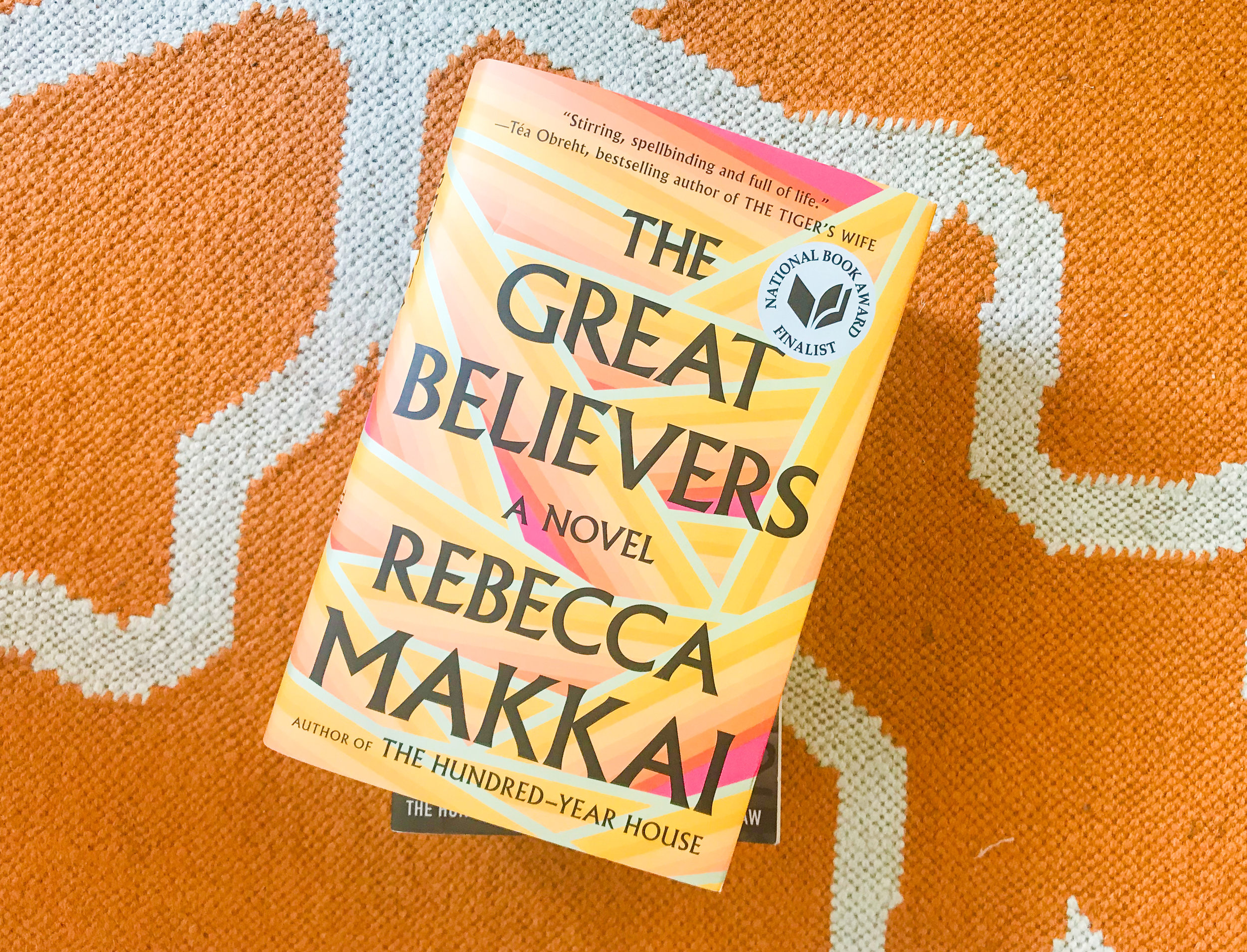The Great Believers
Starting Read + Roam has changed a lot of things both big and small for me – how I see the places I travel, the books I choose, and the way I read. And when I say, ‘the way I read,’ I don’t mean it figuratively – I literally read differently now. I prop books open in my lap, turn pages with my left hand, and hold my phone, open to my notes app, with my right. There, I copy down passages I like, reflect on moments I find meaningful, and try to resist the urge to check emails or surf social media. It’s become reflexive at this point.
So it would take something seismic to make me forget to write notes as I go, to dispense with the ritual that’s become so central to how I gather content for this blog. Rebecca Makkai’s The Great Believers was that something seismic for me. I read it the way people experience early love, or fevers, or intense dreams – it was consuming, absorbing, and so very very good.
Set in Chicago during the 1980s AIDS crisis and in present-day Paris, The Great Believers’ twinned stories have so much going for them – intimate narration, beautiful details, and an incredibly empathetic telling of the devastation AIDS wrought on the gay community. In the first story, we see the world through the eyes of Yale Tishman, an art gallery director whose friends are dying all around him, whose pursuit of a career-making art acquisition serves as a sort of escapism. In the second, we follow Fiona, a friend of Yale’s from 30 years ago, as she searches for her daughter in Paris. The stories tangle and twine with each other so skillfully – shared characters, shared crises, shared visions of the world – that it’s impossible to imagine one without the other.
I climbed into this book – into its beautiful and horrifying and hopeful world – and climbed out two weeks later, completely disoriented and full of the zeal of the newly converted. I told everyone I knew to read this book. To travel vicariously to Paris and watch Fiona read a plaque affixed to a bridge that’s been stripped of its locks (“our bridges can no longer withstand your gestures of love”) and feel like that sentence somehow captures the whole mood of her life. To fall in love with Yale’s beautiful and banal observations about tragedy and change (“It’s been a long time since I had a day that just cuts your life in two. Like, this hangnail on my thumb, I had it yesterday. It’s the same hangnail, and I’m a completely different person.”) To slip seamlessly into Makkai’s worlds and come out with a renewed appreciation for how gratifying great fiction can be.
So I encourage you too – do it. Buy it, read it, love it, forget your phone because of it.

